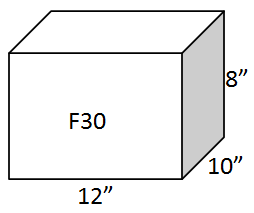The Best Boxes for Books
December 5, 2007
Roscoe, N.Y.
Deirdre and I "transitioned" to upstate New York on Monday — moving ourselves and the two cats and a bunch of stuff from our tiny New York City apartment to our little house in the Catskills, where we'll be spending December and quite likely a significant chunk of January.
The uncertainty of our return back to the city mostly involves my current work-in-progress, The Annotated Turing. I do not want to transition back to the city before submitting the final chapters to my publisher. I'm basically stranded here in the snowy mountains until it's done.
Among the stuff I needed to move up here were books that I'm using for research for The Annotated Turing — everything from the obvious (Andrew Hodges's biography, the four volumes of the Collected Works of A.M. Turing, Jean van Heijenoort's extraordinary anthology From Frege to Gödel) to the more obscure (Machine Man and Other Writings by Julien Offray de La Mettrie, Bertrand Russell and Trinity by G.H. Hardy, and The Love that Dared not Speak its Name by H. Montgomery Hyde).
Books are not easy to box and move. Most people forget how heavy books actually are. They try to put them in large boxes which are unwieldy to carry. Sometimes the bottoms even fall out, scattering the poor books all over the sidewalk.
Go small! I know from experience the best box size for books:

The box is 12" by 10" by 8" deep, a size also known as F30. Unless you're a collector of coffee-table books or huge art books, this size box will probably fit 99% of your books. It works best when each box is packed with books of approximately the same dimensions; depending on their size you can arrange them parallel to either of the three sides of the box. One strip of packing tape closes the bottom; the top can be flapped.
Each F30 box holds on average ten books. The boxes are easy to carry and maneuver, easy to stack and shove into tight places, and can be used multiple times. Several years ago we used 250 of these boxes to move 2,500 books. Today's transition only required 16 boxes. Deirdre used a couple, and I used 12 of them for about 120 books. It's not that I need 120 books to complete The Annotated Turing. I only need some of them. But the problem is that I'm not sure which ones I'll need. It is, as they say, an undecidable problem.
As I removed these books from the shelves in our apartment and boxed them, as I carted these boxes from the apartment out to the car, and as I later carted them from the car into the house, and then unboxed them and re-shelved them (moving the books already on the shelves to other bookcases), didn't I have the tiniest little inkling for an alternative approach? Didn't I whisper to myself —
"Charles, wouldn't you really rather have a Kindle?"
Gosh, I suppose. The problem right now, of course, is that the number of books I'm using for research for The Annotated Turing that are actually available for the Kindle probably comes in at less than 1%. I wouldn't be surprised if it were 0%.
Now I know Jeff Bezos has big plans for the Kindle: "The vision is that you should be able to get any book—not just any book in print, but any book that's ever been in print—on this device in less than a minute," he was quoted in Steven Levy's article in Newsweek, sounding much like a Miss America contestant speaking about world peace. The folks at Google Book Search had a similar "vision" and look at the mess they made of that.
One problem is that ebooks should be stored in a markup-base format — actual text with markup indicating paragraph and character formatting. This is great if the publisher actually supplies the books in this format, or something convertible into that format. Otherwise, the only real alternative is scanning and basically making a PDF file out of a bunch of bitmaps. The result — again, as anyone who's actually used Google Book Search knows — is hard to manipulate and search.
At this point, substituting a Kindle for my multiple boxes of books is utopian, perhaps less utopian than substituting a teleporter for the job of stuffing the wailing cats into their carriers for the trip, but aImost. The printed book was refined over millennia to reach its present form. It's ridiculous to suppose that somebody's going to get the digital alternative correct in a period of several years.
So as I pack my books into F30 boxes, I'm not stubbornly hanging on to obsolete objects of the distant past. I'm using the only technology that actually works for me at this time.